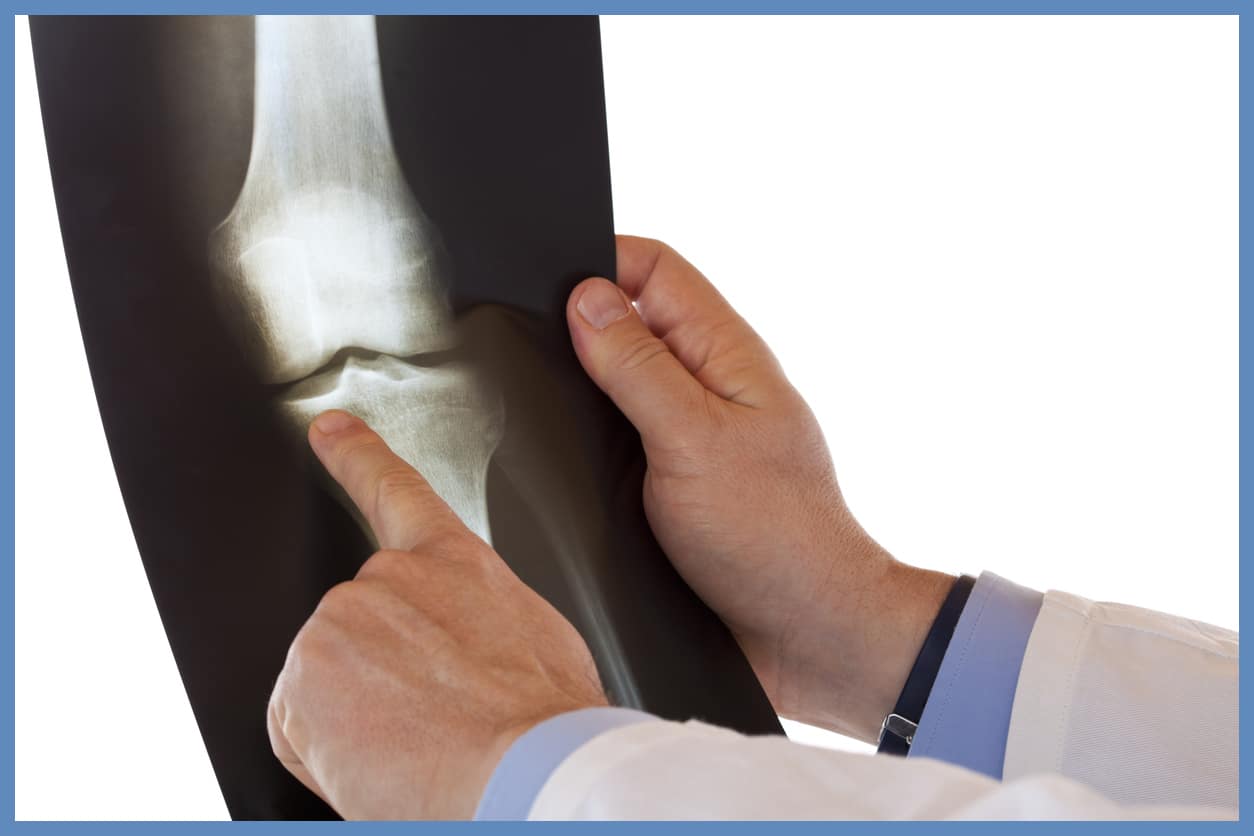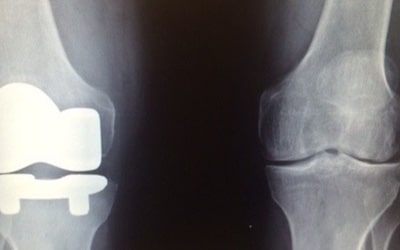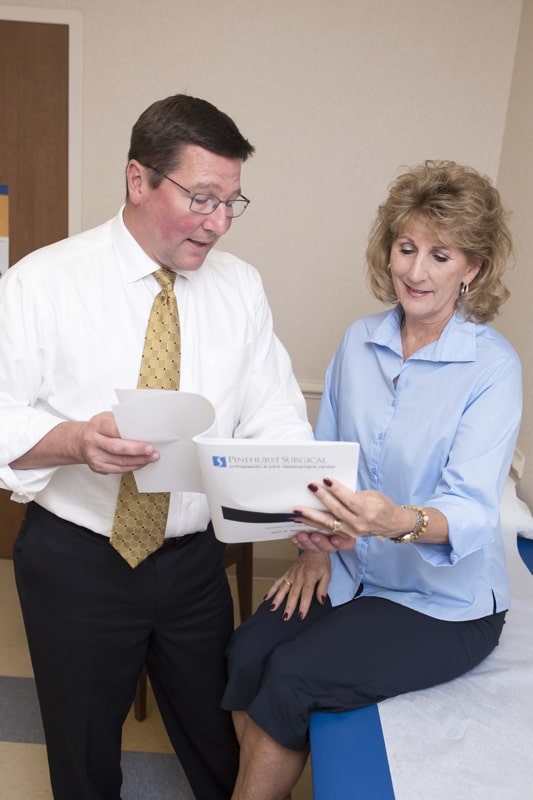Frequently Asked Questions About Orthopaedics
Orthopaedics is the branch of medicine that focuses on the diagnosis, correction, prevention, and treatment of disorders of the bones, joints, muscles, ligaments, tendons, nerves, and skin. This is the musculoskeletal system.
Dr. John Moore is an orthopaedic surgeon, specializing in joint replacements of the hip and knee, minimally invasive hip replacement and knee surgery, and non-surgical treatment of arthritis of the hip and knee.
What is an Orthopaedic Surgeon?
Orthopaedic surgeons like Dr. Moore have extensive training in the proper diagnosis and treatment of injuries and diseases of the musculoskeletal system. Orthopaedic surgeons are required to have approximately 14 years of training.
That’s important when you consider the enormous impact our knees, hips, back, and neck have on our daily well-being.

Musculoskeletal ailments make up over 14 percent of the total spending on health care in the United States, with 135 million provider visits, and over 3 million hospitalizations yearly. Considering the stresses our knees, hips, and other joints must endure throughout every day those numbers aren’t surprising.
Orthopaedic surgeons such as Dr. Moore treat conditions that range from bone and joint disorders and fractures to diseases or tears of the muscles, ligaments, and tendons across the body. Most orthopaedic surgeons specialize in various areas. Dr. Moore specializes in hip and knee replacement, and non-surgical treatment of arthritis of the hip and knee.
What Does an Orthopaedic Surgeon Do?
These are common surgeries performed by orthopaedic surgeons:
Fusion
Used mainly in the spine, fusion is the process where two or more bones are fused together with bone grafts and internal devices, such as metal rods, to eliminate movement in a painful joint.
Internal Fixation
A method to hold the broken pieces of bone in proper position with metal plates, pins, or screws while the bone heals.
Joint Replacement
This is the removal of an arthritic or damaged joint, replacing it with an artificial joint.
Correction of bone deformity by cutting and repositioning the bone.
Do I Need an Orthopaedic Surgeon?
Many people suffer chronic pain emanating from the musculoskeletal system and the only remedy they explore is medication. A better solution would be visiting an orthopaedic surgeon, such as Dr. Moore, who understands your bones and joints and can help you get past the pain and back to healthy function.
If you have certain conditions, it’s time to call an orthopaedic surgeon:
- You have chronic pain — “Chronic” pain is usually defined as lasting more than three months.
- Day-to-day activities are challenging — While joint or bone pain is not uncommon, particularly in older people, it shouldn’t preclude you from being able to perform everyday tasks such as going for a walk or climbing a flight of stairs without pain.
- Your range of motion is decreasing — If your joints feel as if they are tightening, this can be a sign of degeneration from osteoarthritis.
- A soft tissue injury is not improving — Have you twisted a knee or sprained your ankle and two days later there isn’t a noticeable improvement?
How Do You Find the Best Orthopaedic Surgeon?
Finding the right orthopaedic surgeon can seem like a daunting proposition, but if you take things step by step it’s doable. Here are some steps to take:
- Get referrals — You’re seeking an experienced, well-regarded surgeon who specializes in the area you need help, say your hips. Your primary care doctor can be a good first step for possible surgeons. Then speak with friends or coworkers who may have first-hand experience. Professional organizations have member directories. Check medical review websites, such as HealthGrades.
- Check to see if the surgeon is on your insurer’s provider list — You don’t want to fully pay for something like a knee replacement. Your insurance company or the surgeon’s office can tell you if the potential surgeon is one of your insurer’s providers.
- Check credentials — Becoming an orthopaedic surgeon is rigorous, plus the certification must be renewed every 10 years. You can check the provider’s credentials through the American Board of Orthopaedic Surgeons.
- Interview candidates — Have you twisted a knee or sprained your ankle and two days later there isn’t a noticeable improvement?
In What Areas Does Dr. Moore Specialize?
Dr. Moore has four areas of emphasis:
- Non-surgical treatment of arthritis of the hip and knee
- Joint replacement of the hip and knee
- Minimally invasive hip replacement and knee surgery
- Outpatient total hip and knee surgery
Dr. Moore has surgical privileges at First Health Moore Regional Hospital in Pinehurst, First Health Richmond Memorial in Rockingham, and North Carolina Specialties Hospital in Durham. He also performs outpatient joint replacement surgeries at The Surgery Center of Pinehurst, which is adjacent to Dr. Moore’s clinic.
Schedule a Consultation With Our Orthopaedic Specialist in Pinehurst, NC
For More information about Orthopaedic Services with Dr. Moore, contact our Pinehurst, NC office, call us at 910.295.0224, or check out our orthopaedic surgery blog.





